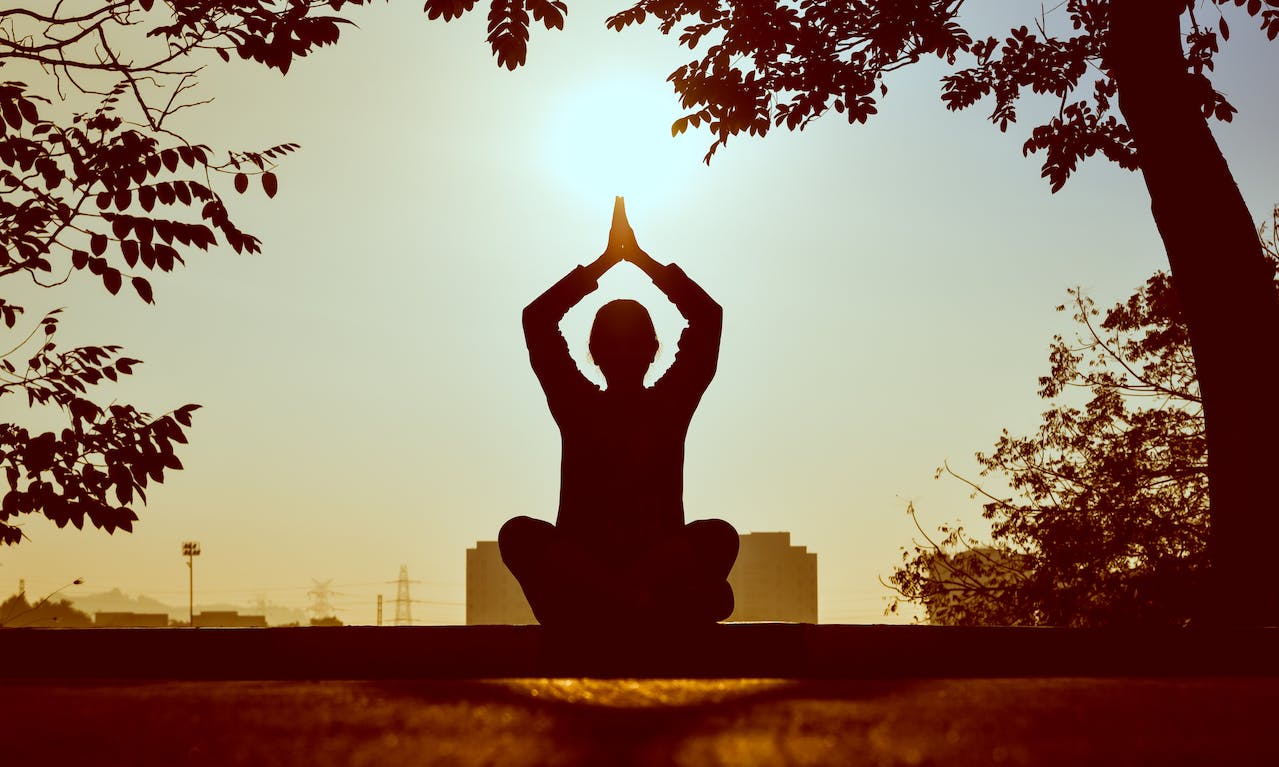The Science Behind Meditation
Meditation is an ancient practice that has become extremely popular in recent years. Research shows it has profound effects on the brain and body. Studies using MRI scans have revealed that meditation increases grey matter in brain regions involved in learning, memory, emotion regulation, and empathy. Other studies found it reduces activity in the amygdala, the brain’s threat center while enhancing connections between brain networks.
Evidence also links meditation to reduced blood pressure, decreased inflammation, and faster recovery from stressful situations. Scientists believe these effects result from calming the body’s stress response. By eliciting the “relaxation response,” meditation triggers physiological changes including slower breathing, lower blood pressure and heart rate, and increased blood flow to the brain.
The multitude of benefits from meditation likely stem from improved regulation of emotion and greater cognitive flexibility and capacity. The research demonstrates a biological basis for the increased clarity, inner peace, and sense of connection many practitioners report.
A Brief History of Meditation
Humans have practiced meditation for millennia. The earliest records of meditation come from the Hindu traditions of India, in the texts known as the Vedas, from approximately 1500 BCE. These writings defined meditation as a focused internal reflection to attain deeper knowledge and awareness.
By the 6th century BCE, other forms of meditation developed in Taoist China and Buddhist India. Taoist practitioners observed nature and flowed intuitively with its rhythms to achieve harmony between themselves, the world, and the cosmos. Buddhists used meditation on the breath and body to attain enlightenment through virtuous living.
These traditions emphasized ethical foundation and wisdom as essential to meditation practice. Their teachings greatly informed meditation’s development and spread worldwide. While innovation continues, the core of these ancient teachings still rings true today.
Key Benefits of Meditation
Contemporary research reinforces what practitioners have long touted—that meditation facilitates clarity, calm, connection, and insight. A dedicated practice yields both immediate and long-term rewards.
Reduces Stress
Meditation elicits the body’s relaxation response, signaling it to reverse the effects of stress. Studies confirm that regular meditation combats anxiety, lowers blood pressure, helps chronic pain, and speeds recovery after stressful situations. The focused breathing so central to most contemplative practices is enough to initiate these changes.
Enhances Focus
A landmark study showed that one month of meditation physically altered regions of the brain important for learning, attention, and memory. Imaging also shows it activates and strengthens neural connections to areas of the executive brain critical for focus. Together, this evidence explains improvements in concentration, productivity, and mental quickness in meditators.
Promotes Emotional Health
By refining neural pathways for optimism, resilience, and perspective-taking, contemplative practice buffers against depression and emotional reactivity. Studies also indicate it helps practitioners be less judgmental, more self-assured, and empathetic. Meditation cultivates qualities that serve practitioners emotionally, whether they’re coping with everyday frustrations or facing life’s bigger adversities.
Types of Meditation
Our complex mental terrain explains why one-size-fits-all meditation is elusive. Different practices suit different dispositions and psychological needs. Fortunately, there are various options.
Focused Attention Meditation
Simply concentrating on a chosen object—like the breath, bodily sensation, or a meaningful word—is central to many mindfulness methods. Sustaining focus teaches practitioners to redirect attention when the mind wanders. It hones proficiency in catching rumination before it spirals out of control—a vital skill that extends beyond the cushion.
Open Monitoring Meditation
Less structured than focused attention, open monitoring relies on nonjudgmental metacognition—thinking about your thinking—to cultivate calm and clarity. By observing the activity of their minds at a psychological distance, practitioners gain insight into habitual thought patterns. This self-awareness increasingly dissolves identification with disruptive thoughts and emotions.
Loving Kindness Meditation
Though often overlooked in mainstream mindfulness, time-tested methods concentrate on radiating friendliness and compassion. Supported by studies, this practice reliably boosts positive moods and social connections. That people show more generosity after loving-kindness meditation suggests it activates empathy—a contention reinforced as imaging reveals enhanced neural activity in emotional centers of the brain.
How to Start a Meditation Practice
The proliferation of apps and YouTube tutorials makes getting started in meditation easier than ever. However, guidelines help establish a structured self-practice. Begin by following these three steps:
Find a Comfortable Position
Whether sitting cross-legged or in a chair with your feet on the floor, the ideal pose is upright yet relaxed. Start seated, hands resting on your lap or thighs with palms up or down in a mudra (hand position) that conveys mindful intention. Scan for tension across your face, neck, and shoulders. Relax with anything clenched or tight to help energy flow freely.
Focus on Your Breath
Connect with your breathing without manipulating it. Mindful attention to each inhale and exhale both concentrates and anchors awareness in the present moment. Observe the steady rhythm of breath moving in and out. Use it as a home base, returning to conscious breathing whenever distracted.
Be Patient with Yourself
Inevitably, your concentration strays. Judgment and frustration waste energy better spent redirecting attention. Recognize distractions like itches, daydreams, emotions or outside noises are perfectly normal. Note them briefly before gently bringing the focus back to the breath. Breathe through difficulty rather than resisting it and progress happens.
Deepen Your Practice
For many, proceeding beyond basic mindfulness instructions requires support. Consider adding the elements below to enrich your meditation routine. Noted benefits usually take weeks or months of daily sessions, so be committed.
Try Different Techniques
A singular approach rarely suits everyone. Experiment with different methods to discover what resonates then target practice there. Check local classes or apps for guided sessions on varied techniques. For example, find options in mantra meditation or yoga nidra if the breath focus doesn’t stick.
Make Time to Practice Daily
Consistent sessions produce cumulative effects that intensify over time. Devote at least 10-15 minutes twice daily to make meditating an indispensable activity. Link practice to your routine: Upon awakening start the day calmly, during lunch to prime afternoons productively, or before bedtime to unwind effectively.
Take Classes and Retreats
Guidance makes a difference for newcomers and veterans alike. Search out workshops, ongoing courses or intensive retreats offered locally and facilitate progress. Guides help troubleshoot when you feel blocked. Plus in groups, you learn new styles to try. The potential to connect with the community sustains motivation.
Conclusion
A quiet transformation summiting the tip of a vast iceberg, meditation alters life below everyday awareness. By calming stress pathways, focusing attention, and cultivating positive mental states, simple practices confer resilience not only in formal sessions but throughout each day. The profound neurological changes also foster greater compassion—towards both ourselves and others. For millennia this silent path has led seekers in all eras deeper, beyond isolation and anxiety to tranquility, meaning, and belonging right where they stand. Today science and tradition affirm it remains open to anyone with the courage to look within through a clear lens edged by the bounds of an open heart.
FAQs
What are the benefits of daily meditation? Studies show that meditating for just 10-15 minutes daily reduces stress, improves emotional regulation and focus, decreases blood pressure, helps chronic pain, and speeds recovery during stressful times. These effects accumulate so consistency matters.
How long until I see the benefits of meditation? For beginners, noticeable changes in clarity, calm, and resilience often arrive within two weeks of brief daily practice. But the deeper neurological changes enabling traits like enhanced empathy, calmness and insight continue developing over months and years of regular time on the cushion.
Is meditation safe? For most healthy individuals, meditation is considered extremely safe with no negative side effects. However, those struggling with trauma or diagnosed psychological disorders should exercise caution and consult a doctor before starting. Meditation stirs internal terrain that may require guidance to navigate effectively.
What is mindfulness meditation? Mindfulness simply means maintaining moment-by-moment awareness without judgment. So mindfulness meditation refers to various focused attention practices concentrating on objects like the breath, bodily sensations, mantras, or visualizations to cultivate mental clarity, calm, concentration, and insight.
How do I start a home meditation practice? Establish a simple daily home practice by choosing a quiet space, sitting upright comfortably, closing your eyes, and focusing attention on your breath without manipulating it. When your mind wanders, gently return attention to the sensory sensations of inhaling and exhaling. Start brief for 5-10 minutes and gradually increase from there.


